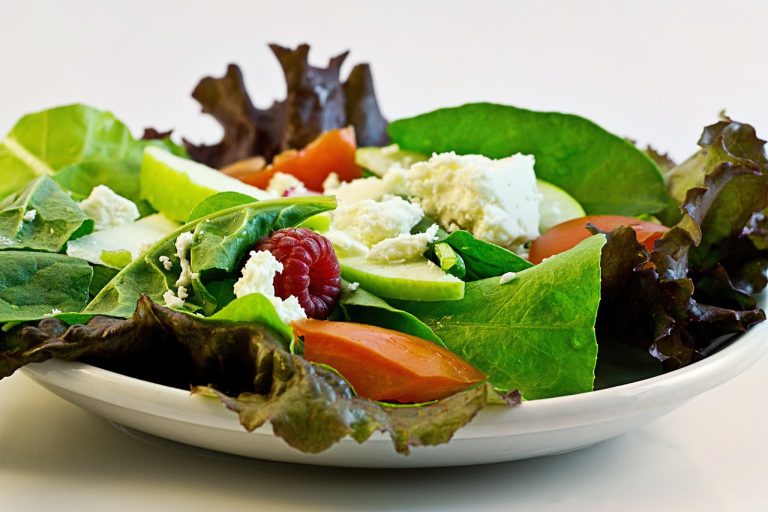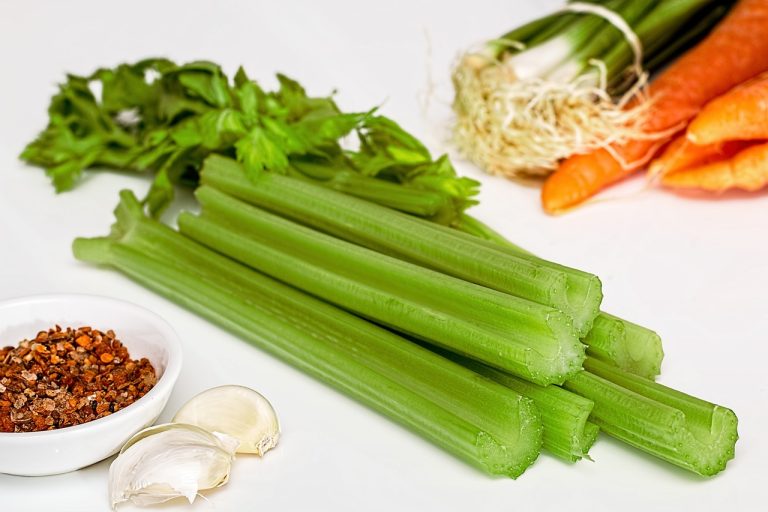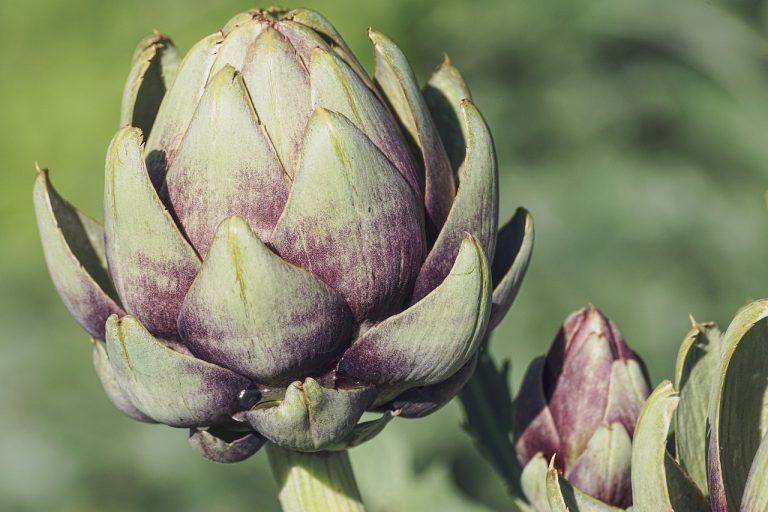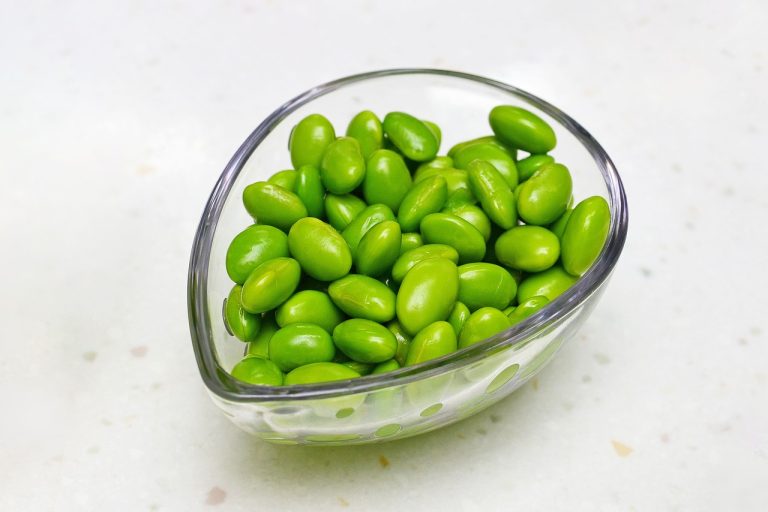Are Radishes Low FODMAP? Must-Know For IBS Sufferers!
If you’re considering a low FODMAP diet, you might be wondering whether radishes fit into this dietary plan.
Good news! Radishes are indeed low in FODMAPs, making them a suitable choice for individuals dealing with digestive issues like irritable bowel syndrome (IBS). In fact; some experts state that radishes have NO FODMAPS at all.
Furthermore, radishes may prevent constipation and acid reflux too. Learn how to add radishes to your low FODMAP, IBS diet.
Are Radishes Low FODMAP?

Yes, Radishes are excellent root vegetables for people on a low FODMAP diet. In fact; radishes have no FODMAPS at all and may even prevent constipation and acid reflux.
Radishes, being root vegetables, are not only flavorful and crunchy but also provide various health benefits.
They are a great source of vitamins, minerals, and antioxidants. Integrating radishes into your low FODMAP meal plan can add that delightful crunch and vibrant color to your salads and side dishes, making them both nutritious and visually appealing. So go ahead, and enjoy your radishes without any worries about FODMAP content!
Nutrition in Radishes
| Nutrient | Amount per 100g | % Daily Value |
|---|---|---|
| Calories | 16 | <1% |
| Total Fat | 0.1g | <1% |
| Sodium | 39mg | 2% |
| Potassium | 233mg | 7% |
| Total Carbs | 3.4g | 1% |
| Dietary Fiber | 1.6g | 6% |
| Protein | 0.7g | 1% |
| Vitamin C | 14.8mg | 25% |
Aside from their nutritional content, radishes have low values for glucose, fructose, and excess fructose per serving, making them a suitable option if you’re following a low FODMAP diet.
Glucose, Fructose, and Excess Fructose per serving:
| Compound | Amount per 100g |
|---|---|
| Glucose | 1.4g |
| Fructose | 1.3g |
| Excess Fructose | 0g |
Incorporating Radishes into Your Low FODMAP Diet
Radishes are a delicious and crunchy addition to your low FODMAP diet. They offer a refreshing flavor and are packed with nutrients.
In this section, you’ll learn about appropriate serving sizes and limits for radishes in a low FODMAP diet, and discover a few radish recipes that you can try at home.
Serving Sizes and Limits
You can enjoy radishes in moderate quantities within the low FODMAP guidelines. A serving of about 1 cup (120 grams) of sliced radishes is considered safe for most individuals following a low FODMAP diet.
However, it’s essential to listen to your body and adjust the serving size according to your tolerance. Remember, everyone’s tolerance to FODMAPs varies, so it’s crucial to find the right balance that works for you.
Also Read: Is Cucumber Low FODMAP?
Radish Recipes

Incorporating radishes into your low FODMAP diet can add flavor, crunch, and nutrients to your meals.
Experiment with different radish recipes and find your favorite ways to enjoy this versatile vegetable while staying within the low FODMAP guidelines.
1. Radish and Cucumber Salad
To make a colorful and refreshing salad, combine sliced radishes, cucumber, red bell pepper, and lettuce in a large bowl.
Mix in a dressing made from olive oil, lemon juice, mustard, salt, and pepper. Toss to combine, and enjoy this fresh, low-FODMAP salad as a side or main dish.
2. Roasted Radishes
Roasting radishes brings out their natural sweetness and mellows their spicy bite. To make roasted radishes, simply toss radishes with olive oil, salt, and your choice of low FODMAP herbs such as thyme or rosemary.
Spread them evenly on a baking tray and roast in a preheated oven at 400°F (200°C) for 20-25 minutes or until tender and golden brown. Roasted radishes make a delicious low-FODMAP side dish for any meal.
3. Radish-Mint Dip
A tangy and flavorful radish-mint dip is a perfect low-FODMAP snack option for when you’re craving something fresh and zesty.
Blend together chopped radishes, fresh mint leaves, lemon juice, Greek yogurt (lactose-free, if necessary), salt, and pepper in a food processor until smooth and creamy. Serve this dip with low FODMAP veggies or gluten-free crackers for a tasty and satisfying snack.
Potential Side Effects and Precautions

Radishes have no FODMAP and can be enjoyed by most people with IBS without causing any digestive issues.
However, it’s essential to keep some potential side effects and precautions in mind when consuming radishes.
Bloat or Gas
Firstly, some individuals might experience mild gastrointestinal symptoms after consuming radishes, such as bloating or gas. It’s essential to monitor your body’s response and adjust your radish intake accordingly if you notice any discomfort.
Thyroid Issues
Secondly, radishes are known to contain goitrogens, which are naturally occurring compounds that can interfere with thyroid function. If you have a thyroid disorder or are taking thyroid medication, consult your healthcare provider before including radishes in your diet regularly.
Always Practice Moderation
Lastly, it’s crucial to remember that moderation is key when following a low FODMAP diet. While radishes are considered low in FODMAPs, overconsumption of any food, even those that are low FODMAP, can lead to digestive discomfort.
Frequently Asked Questions
Is daikon radish low fodmap?
Daikon radish, also known as Japanese radish or white radish, is indeed low in FODMAPs. This makes it a suitable vegetable option for those following a low FODMAP diet to manage their IBS symptoms.
You can enjoy daikon radish in various dishes, like salads, stir-fries, and pickles, without worrying about exacerbating your IBS symptoms.
Do radishes reduce bloating?
Yes, some people experience relief in gas and bloating with radishes as they have a calming effect on the digestive system.
Is raw carrot low FODMAP?
Yes, raw carrots are low-FODMAP and can be eaten by people with IBS.
Conclusion – Are Radishes Low FODMAP?
Yes, radishes are considered low in FODMAPs. These root veggies can be safely consumed on a low FODMAP diet.
However, it’s important to note that individual tolerances to foods can vary, and some people with IBS may still experience symptoms even when consuming low-FODMAP foods.
It’s best to work with a registered dietitian or healthcare professional who is familiar with the low FODMAP diet to create a personalized and balanced diet plan that meets your specific needs and dietary requirements.

Jane Porter is an architect that like many others, had her life significantly impacted by digestive problems for many year. Trying to find a solution to her digestive problem, she came across the low FODMAP diet, a scientifically-backed approach designed to alleviate symptoms associated with irritable bowel syndrome (IBS) and other digestive disorders.







